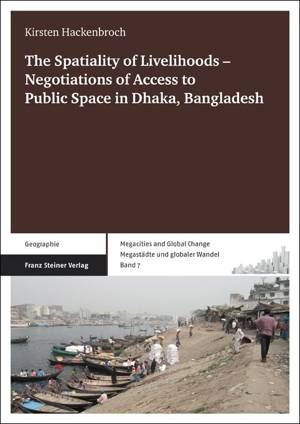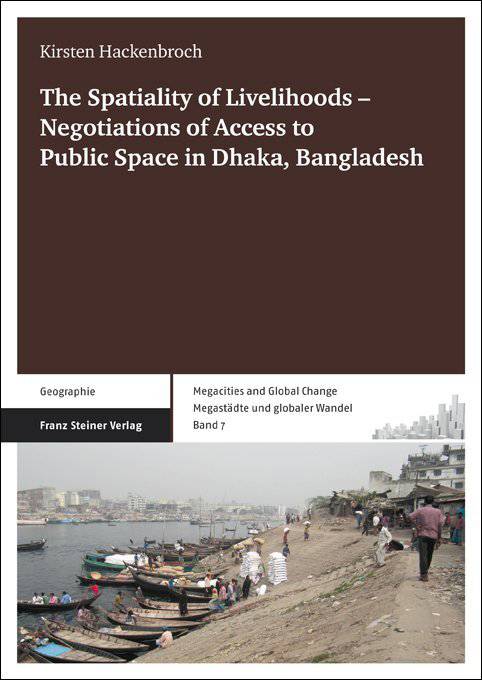
- Afhalen na 1 uur in een winkel met voorraad
- Gratis thuislevering in België vanaf € 30
- Ruim aanbod met 7 miljoen producten
- Afhalen na 1 uur in een winkel met voorraad
- Gratis thuislevering in België vanaf € 30
- Ruim aanbod met 7 miljoen producten
Zoeken
The Spatiality of Livelihoods - Negotiations of Access to Public Space in Dhaka, Bangladesh
Kirsten Hackenbroch
€ 148,45
+ 296 punten
Omschrijving
Access to public space is an essential asset of urban livelihoods. Pavements, street spaces, vacant plots, public parks and city squares are used intensively for all kinds of activities. As open space in rapidly growing and poorly planned conurbations is a very scarce resource, it is highly contested between different groups pursuing strongly vested economic, social and cultural interests. The research for this book is grounded in Bangladesh's megacity Dhaka, where more than 300,000 additional inhabitants have to be accommodated every year in highly densified settlements. Empirical evidence collected in a consolidated inner-city settlement with low to middle-income residents and in a low-income settlement without planning approval serves as the basis for analysis. Following a grounded theory approach that integrates elements of ethnographic research, the author applies a complex and innovative set of qualitative methods. With the newly coined term "spatiality of (urban) livelihoods" the research deconstructs the nexus between poverty and urban space in the everyday life of urban dwellers and systematises the negotiations for access to this scarce resource. The emerging actor constellations and power relations in negotiations are embedded in the recent discourses on urban informality and spatialities of (in)justice.
Specificaties
Betrokkenen
- Auteur(s):
- Uitgeverij:
Inhoud
- Aantal bladzijden:
- 396
- Taal:
- Engels
- Reeks:
- Reeksnummer:
- nr. 7
Eigenschappen
- Productcode (EAN):
- 9783515103213
- Verschijningsdatum:
- 22/11/2012
- Uitvoering:
- Paperback
- Formaat:
- Trade paperback (VS)
- Afmetingen:
- 170 mm x 239 mm
- Gewicht:
- 675 g

Alleen bij Standaard Boekhandel
+ 296 punten op je klantenkaart van Standaard Boekhandel
Beoordelingen
We publiceren alleen reviews die voldoen aan de voorwaarden voor reviews. Bekijk onze voorwaarden voor reviews.







